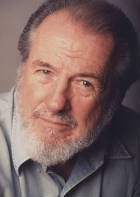Eric Walberg: Atzmon on Jewishness- Jezebel’s legacy
Gilad Atzmon: I was recently interviewed by Eric Walberg for the prestigious Al Ahram Weekly. Walberg is an inspiring thinker. I learned a lot from him along this interview.
The Wandering Who? A study of Jewish identity politics, gives a unique insider’s view of the Israeli mind. Its author explains to Eric Walberg that you can take the girl out of Jezebel, but you can’t take the Jezebel out of the girl
Gilad Atzmon is a world citizen who calls London his home. He was born a sabra, and served as a paramedic in the Israeli Defense Forces during the 1982 Lebanon War, when he realised that “I was part of a colonial state, the result of plundering and ethnic cleansing.” He has wandered far since then, become a novelist, philosopher, one of the world’s best jazz saxophonists, and at the same time, one of the staunchest supporters of the Palestinian cause, supporting their right of return and the one-state solution. He now defines himself as a “proud self-hating Jew” and “a Hebrew-speaking Palestinian”. In 2009 Turkish Prime Minister Recep Tayyip Erdogan quoted Atzmon during a debate with Israeli president Shimon Peres, telling him at the World Economic Forum that “Israeli barbarity is far beyond even ordinary cruelty.” Atzmon denies that there is even such a concept as “anti-Semitism”, stating that “‘anti-Semite” is an empty signifier. “You are either a racist which I am not, or have an ideological disagreement with Zionism, which I have.” When railed against as an anti-Semite, Gilad quotes the witticism: “While in the past an ‘anti-Semite’ was someone who hates Jews, nowadays it is the other way around, an anti-Semite is someone the Jews hate.”
Atzmon denies that there is even such a concept as “anti-Semitism”, stating that “‘anti-Semite” is an empty signifier. “You are either a racist which I am not, or have an ideological disagreement with Zionism, which I have.” When railed against as an anti-Semite, Gilad quotes the witticism: “While in the past an ‘anti-Semite’ was someone who hates Jews, nowadays it is the other way around, an anti-Semite is someone the Jews hate.”
One of his Orient House Ensemble’s nine albums, appropriately called “Exile”, with its arresting blend of Middle Eastern and Western themes, was BBC jazz album of the year in 2003. His fascination with Arab music was a natural development out of his embrace of the Palestinian cause. Arab music “must be internalised, reverting to the primacy of the ear”.














 ‘Tears of Gaza’ by Vibeke Lokkeberg is a documentary film that should be watched by every American, to see how Israel spends our taxes. Every European should watch it, to see the true face of Israel. It should be viewed by every Arab, to renew our resolve not to allow a racist nation to wipe Palestine and her children from the map and from history.
‘Tears of Gaza’ by Vibeke Lokkeberg is a documentary film that should be watched by every American, to see how Israel spends our taxes. Every European should watch it, to see the true face of Israel. It should be viewed by every Arab, to renew our resolve not to allow a racist nation to wipe Palestine and her children from the map and from history.